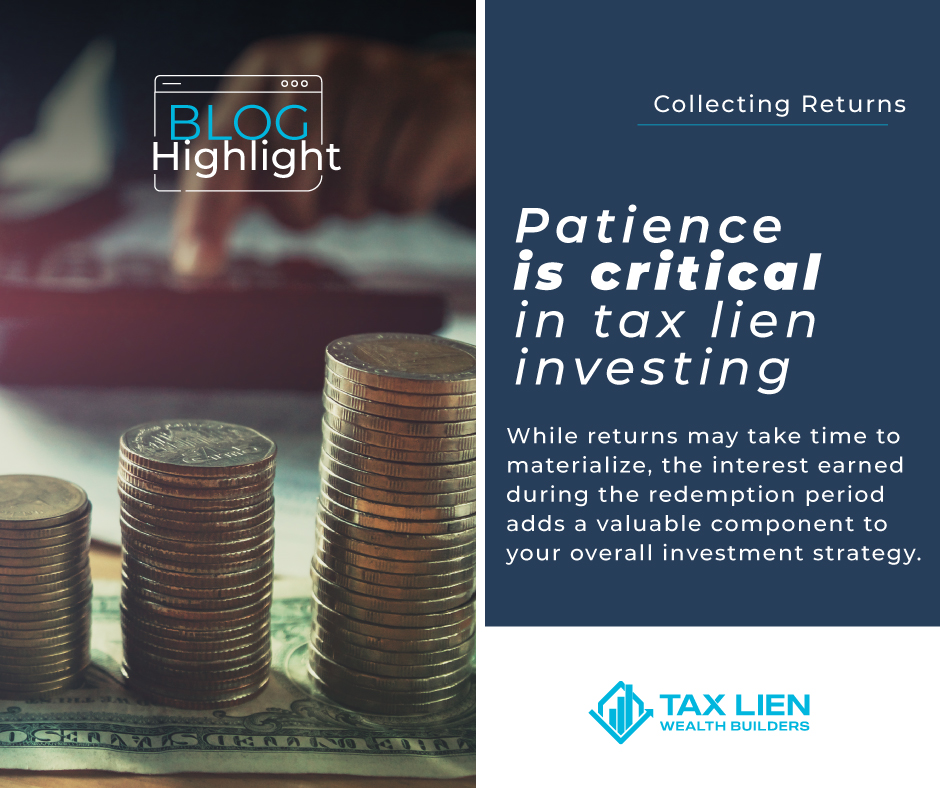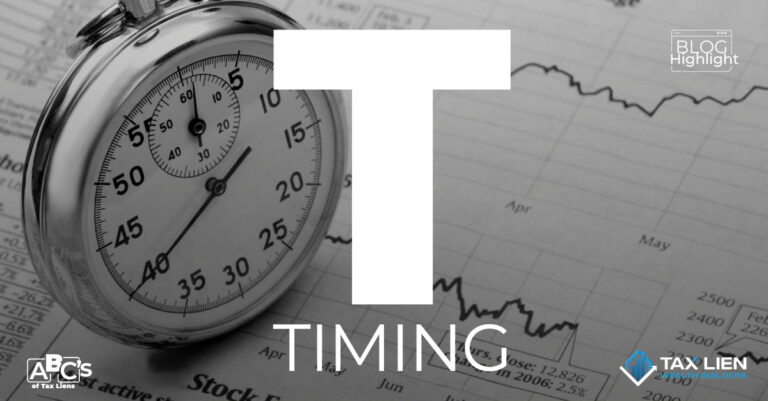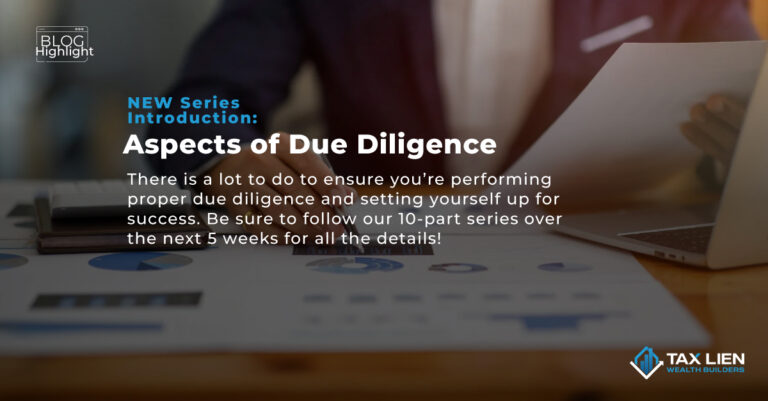Collecting Returns
Collecting returns in tax lien investing involves a combination of patience and strategic monitoring. As tax lien investors, we wait for the property owner to pay the overdue taxes. In most cases, you’ll earn interest on your investment. Here’s what you can expect during the returns collection phase:
- Redemption Period:
- After winning the tax lien, the property owner is given a redemption period to pay off the overdue taxes and any accrued interest. This period varies by jurisdiction and can range from a few months to several years.
- Interest Earnings:
- Throughout the redemption period, you continue to earn interest on the amount paid for the tax lien. The auction or local regulations typically predetermine the interest rate. Investors will get their money back plus interest, ONLY when the property owner decides to pay.
- Communication with Property Owner:
- Some investors choose to establish communication with the property owner during the redemption period. This can involve providing information about the outstanding debt, explaining the redemption process, and exploring potential payment arrangements. Keep in mind that this is NOT required, and most investors choose NOT to do this.
- Payment Confirmation:
- Once the property owner pays the overdue taxes and the accrued interest, you receive confirmation of the payment. This marks a successful redemption, and the tax lien is considered satisfied. This information will come from the county clerk of court or tax collector.
- Recording Satisfaction of Lien:
- The satisfaction of the tax lien is recorded in the county’s public records. This step is crucial for maintaining a clear title for the property and signaling that the property owner has fulfilled their obligation.
- Receipt of Funds:
- Upon redemption, you receive the funds corresponding to the initial investment and the interest earned. These funds are the direct returns on your tax lien investment. This information will be mailed or emailed to you via the county Clerk of Court or the Tax Collector.
- Reinvestment or Further Action:
- With the returns in hand, you can decide whether to reinvest in more tax liens, diversify your investments, or explore other opportunities in the real estate market.
- Non-Redemption and Foreclosure (Optional):
- If the property owner fails to redeem the tax lien within the specified period, you may initiate foreclosure proceedings if you choose to pursue this option. Successful foreclosure can lead to taking ownership of the property. This process can only occur after the redemption period ends.
- Proceeds from Foreclosure:
- If you decide to foreclose and the property is sold, you may receive the proceeds from the sale. This includes the initial investment, interest earned, and any additional funds generated from the sale. Note: every state has its laws governing this process. Speak to a coach to understand this further.
- Evaluate and Learn:
- After the returns collection process, take the time to evaluate the overall performance of your tax lien investments. Learn from each experience to refine your strategy and make more informed decisions in future auctions.
Remember, patience is critical in tax lien investing. While returns may take time to materialize, the interest earned during the redemption period adds a valuable component to your overall investment strategy.







